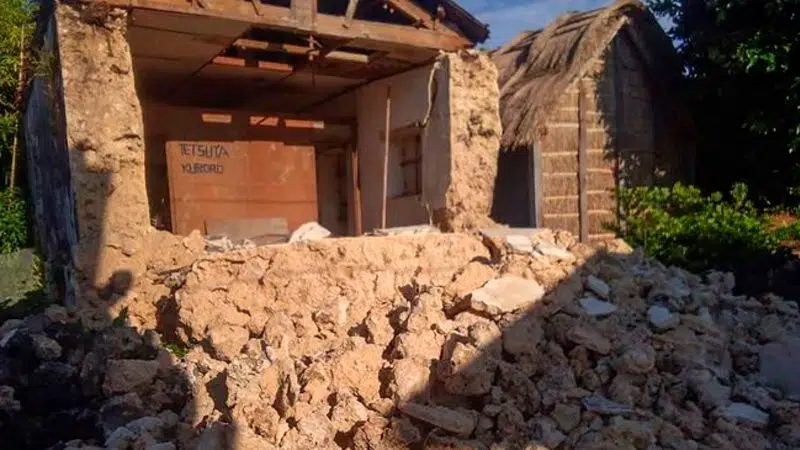
8 dead, 60 hurt as quakes shake northern Philippine isles
MANILA, Philippines — Two strong earthquakes hours apart struck a group of sparsely populated islands in the Luzon Strait in the northern Philippines early Saturday, killing at least eight people, injuring about 60 and causing substantial damage.
The quakes collapsed houses built of stone and wood, arousing residents from sleep, said Roldan Esdicul, who heads the Batanes provincial disaster-response office.
“Our bed and everything were swaying from side to side like a hammock,” Esdicul told The Associated Press by cellphone from Basco town, the provincial capital. “We all ran out to safety.”
More than 1,000 residents of hard-hit Itbayat island — nearly half of the island’s population of mostly fishermen — were advised not to return to their homes and stay in the town plaza as successive aftershocks shook the region, he said.


